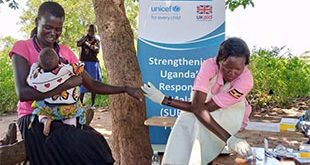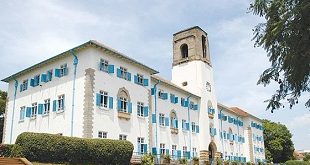Even in rural Malawi, it is not only a story of misery; there is innovation: That is the story of the great William Kakamba whom I met at the TED Conference in Arusha in June 2007. Coming from a poor home, with his parents living in a grass thatched house, Kakamba read in a local library about how to generate electricity using windmills. He went home and created one using rudimentary tools and there it was – electricity.
Kakamba is not alone; similar stories abound across this continent. There is the story of Victor Mugai, a young Kenyan I taught at Yale University. His father and mother died when he was seven, his sisters married in their early teens and he had to raise himself and his young brother. At eight, he built his own clock; at 10, he built a television set and at 14, he built a rocket – all out of his grass thatched hut in rural Kenya. Yet he had the audacity to dream of studying in America. Without the help or knowledge of his government, he struggled and was helped to get a scholarship to Yale where he is studying nuclear physics.
But it is also the story of Fred Balagadde; best student in O levels in Uganda in 1998: He struggled, went to the US, paid his own fees and finally did his PhD in bio technology at California Institute of Technology and Stanford University. He invented a micro chemostat, a first-of-its-kind microfabricated fluidic chip that mimics a biological cell culture environment in a highly complex web of tiny pumps and human hair-sized water hoses, all controlled by a multitasking computer. This pioneering research, that has left many in the Silicon Valley scratching their heads, can diagnose 98 percent of all diseases without help of a doctor.
There are a million and one Africans doing these things – in villages, in towns, on the continent and abroad. But this story of innovation is often disarticulated from political life in Africa because we have a perverted democracy where the political process seeks to enhance the privileges of a few at the expense of the many.
There are many people from the West who genuinely believe Africans can be helped to help themselves. Often, this section of Western interest in Africa finds talented people like Mugai, Kakamba and Balagadde and helps them to achieve their dreams clearly recognising that these are the continent’s change agents. But such help is the exception, not the rule. For most Westerners, the attraction is in helping where the television cameras are watching and hence gain worldwide publicity.
I admit that our governments have been abysmal in promoting our innovative youths. One of the few countries in Africa hungrily looking for its best brains to serve it is Rwanda; for if Kakamba, Mugai and Balagadde were Rwandan, they would be the focus of government policy and action. And it is not a surprise that human rights groups hate Rwanda calling it a police state; and a section of Africa’s ill informed intellectual class agrees. Good enough Rwandans tell their story differently in opinion polls by such institutions as Gallup Poll – 95% say they have confidence in their public institutions, making the country 4th in the entire world.
Yet Madonna’s documentary was not without good insights. The PhD Mathew Chikoanda says “the problem we have, not just in Malawi but across Africa is this victim mentality – the tendency to shift blame for our problems from ourselves to other people.” I agreed entirely. However, I would add that while our problems are largely domestically generated and the demands to solve them are locally articulated, the framework of discussing the solution is always a textbook theory developed out of the experience of other countries. Part of Africa’s predicament is born of this persistent mismatch between demands and solutions.
Chikoanda went on quoting a Malawi proverb that “No one can share your head in your absence.” So we need to take responsibility for ourselves. We need to empower our people. External assistance is okay. But we need to begin with our own solutions. Chikoanda was touching on something I feel passionately about. And it is in Rwanda that I have seen this begin to happen. And this could be largely because in their moment of national catastrophe, the people of Rwanda saw the international community cut and run. They learnt self reliance the hard way.
Towards the end, Clinton comes back with a comment – “Africans are ready to tackle their own problems,” he says, “but they are looking for someone to help them, to empower them.” Possibly, but why can’t we empower ourselves and only let others help us on our own terms? Besides, who are these helpers? What are their interests and motivations? Well, Africa has been involved in years of parroting the view of others about who we are, what we are and what we need. It is time for us to compose our own song and sing it. Madonna and all the kind people of this world cannot save Africa. Only Africans can save themselves.
amwenda@independent.co,ug
 The Independent Uganda: You get the Truth we Pay the Price
The Independent Uganda: You get the Truth we Pay the Price



